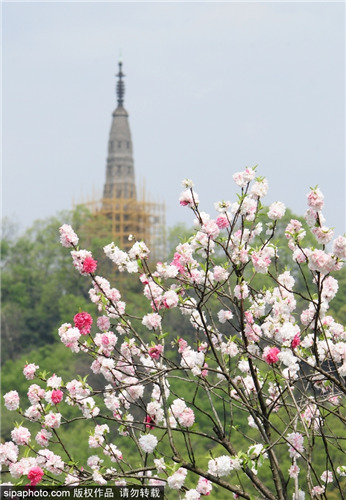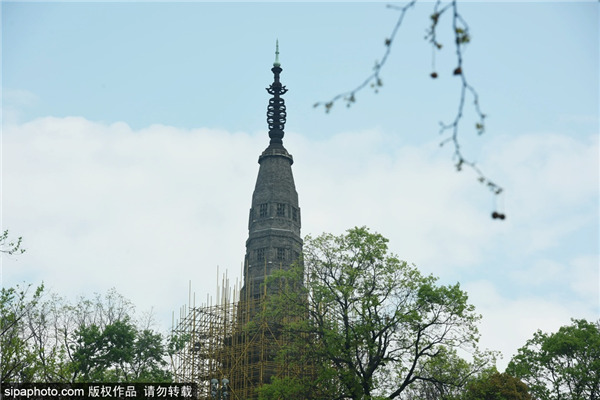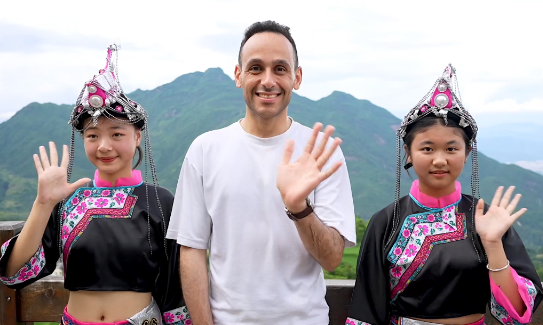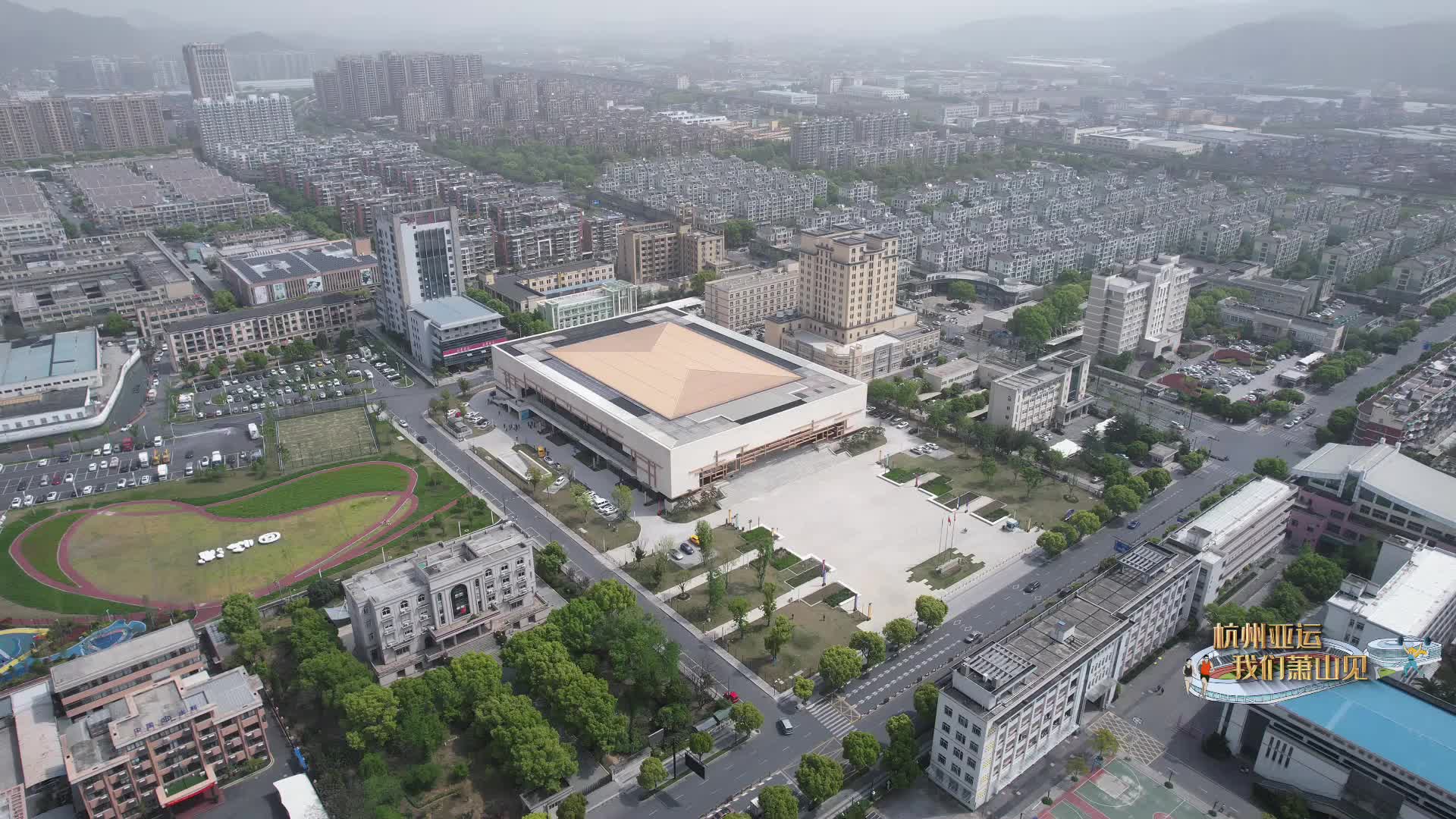Ancient pagoda takes off 'face mask' to breathe spring air

Baochu Pagoda, a thousands-year-old pagoda on the northern shore of the West Lake of Hangzhou in East China's Zhejiang province. [Photo/sipaphoto.com]
Cherry blossoms beside the Yellow Crane Tower in Wuhan mark the arrival of the long-awaited spring after the long winter.
When lockdown in Wuhan ended Wednesday, Baochu Pagoda, a thousands-year-old pagoda on the northern shore of the West Lake of Hangzhou in East China's Zhejiang province also took off its "face mask" to breathe in the spring air.
Listed as a national cultural relic in 2013, Baochu Pagoda sits on the top of Baoshi Mountain, which means "precious stone" in Chinese.
In 2018, the top of the pagoda's spire was found leaning and needed to be repaired. It was put into restoration last October.
According to Tian Qiang, an engineer from the pagoda's administration office, the leaning of the pagoda might be caused by weathering and external force of kite strings.
Knowing that the pagoda was "sick", experts in the field of cultural relics restoration came to aid the restoration.
To restore the spire without causing any damage to the pagoda, it took around 20 days to build a 46-meter high scaffold around the pagoda.

Baochu Pagoda, a thousands-year-old pagoda on the northern shore of the West Lake of Hangzhou in East China's Zhejiang province. [Photo/sipaphoto.com]
Chinese Academy of Cultural Heritage and other institutions gave their suggestions on the removal of the spire and also provided data support for repair and restoration of the leaning part via x-ray inspection and 3D digital scanning.
Ancient scripture was also found on the top of the spire. "Although the damage to the spire is kind of critical, it still reflects the delicacy of the ancient Chinese bronze casting technique. The ancient Chinese could even carve on a thin copper sheet," said Ma Jinyu, an expert with the Chinese Academy of Cultural Heritage.
After months of restoration, the well-restored pagoda with a delicate spire stood out from the green forest.
"The removal of the scaffold marks the completion of maintenance work of Baochu Pagoda," said Xu Lili, staff from the pagoda's administration office. "The demolition work was once affected by the epidemic outbreak."
"Now, the scaffold has been removed; then we will clean the closed area and get down to afforestation and environmental restoration. As of April, visitors will meet the 'healed' Baochu Pagoda again." Xu said.
The ancient pagoda was first built more than 1,000 years ago. It was changed into a seven-story pagoda when it was rebuilt in the Northern Song Dynasty (960-1127).
-
Foreign teacher, Hangzhou students capture picturesque countryside
August 9, 2023
-
Hangzhou Asian Games launch 50-day-to-go campaign
August 4, 2023
-
Hangzhou achieves 6.9% GDP growth in H1 2023
July 27, 2023



